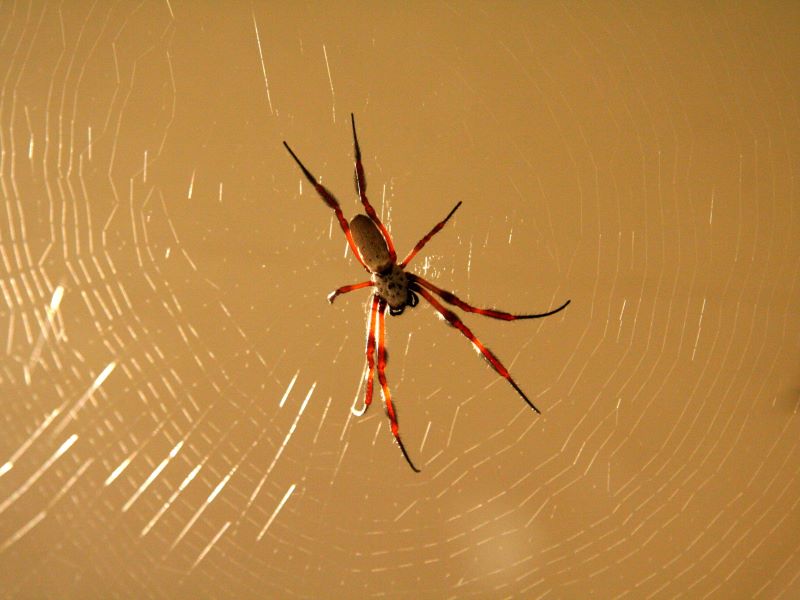Spider eggs are a fascinating topic for many people. If you’re curious about how long it takes for spider eggs to hatch, you’re not alone. Understanding the hatching process and the timeframe for spider eggs to hatch can be helpful for those who want to care for spiderlings post-hatch.
Spider eggs are laid in silken sacs that can contain hundreds of eggs. The hatching process of spider eggs can vary depending on the species. Some spiders will overwinter in the egg sac and emerge in the spring, while others will hatch within a few weeks. It’s important to note that the hatching time can be species-specific, so it’s important to do your research if you’re trying to care for spiderlings.
Key Takeaways
- Spider eggs can hatch within a few weeks or overwinter in the egg sac and emerge in the spring.
- The hatching process of spider eggs can vary depending on the species.
- Understanding the timeframe for spider eggs to hatch is important for those who want to care for spiderlings post-hatch.

Understanding Spider Eggs
As someone who is fascinated by spiders, I have always been curious about how long it takes for spider eggs to hatch. After some research and reading through the provided search results, I have learned that the length of time it takes for spider eggs to hatch can vary depending on the species of spider and the environmental conditions.
For example, some spiders, such as the black widow, can hatch in as little as 10 days, while others can take several months to hatch. In general, spider eggs will hatch faster in warmer environments with higher humidity levels.
Spider eggs are typically laid in egg sacs, which can vary in appearance depending on the species. These sacs are either hidden in the spider’s web or carried by the female spider depending on the species. Once the spiderlings emerge from the egg, they will stay close to the nest for a few weeks.
It is important to note that spider eggs can be difficult to identify, especially for those who are not familiar with spider anatomy. However, if you are trying to identify spider eggs, it is important to look for egg sacs that are round or oval-shaped and made of silk.
Overall, understanding spider eggs and how long they take to hatch can provide valuable insight into the life cycle of spiders. Whether you are a spider enthusiast or simply curious about these fascinating creatures, learning about spider eggs can be a rewarding experience.
Hatching Process of Spider Eggs
As a writer, I understand that people are curious about how long it takes for spider eggs to hatch. After conducting some research, I found that the hatching process of spider eggs can vary depending on several factors.
According to my sources, factors such as the spider species, temperature, humidity, food supply, and size of the egg sac can all affect the incubation period of spider eggs. Different species of spiders can have wildly different incubation periods, ranging from a few weeks to several months.
In general, spider eggs usually take a few weeks to hatch. However, some spiders in temperate regions will overwinter in the egg sac and emerge in spring. In many spider species, the mother guards the egg sac from predators until the young hatch. Other species will place the sac in a secure location and leave the eggs to their own fate.
It’s important to note that spider eggs can be difficult to spot. They are usually hidden in their web or carried by the female depending on the species. Once the spiderlings emerge from the egg, they’ll stay close to the nest for a few weeks.
In conclusion, the hatching process of spider eggs can vary depending on several factors. While some species may take only a few weeks to hatch, others may take several months. However, with the right conditions, spider eggs will eventually hatch, and the spiderlings will emerge to begin their journey through life.
Timeframe for Spider Eggs to Hatch
As a spider enthusiast, I know that spider eggs take varying amounts of time to hatch depending on the species and environmental conditions. In this section, I will provide you with information on the average duration for spider eggs to hatch and the factors that influence their hatching time.
Influencing Factors
The length of time it takes for spider eggs to hatch can be influenced by several factors. The most significant factors include:
- Temperature: Spider eggs will hatch faster in warmer environments.
- Humidity: Higher humidity levels can speed up the hatching process.
- Species: Different species of spiders have varying hatching times.
Average Duration
According to my research, spider eggs can hatch in as little as 7 days and as long as several months. The table below shows the average duration for some common spider species:
| Spider Species | Average Hatching Time |
|---|---|
| Black Widow | 10-20 days |
| Brown Recluse | 28 days |
| Hobo Spider | 20 days |
| Wolf Spider | 40 days |
| Jumping Spider | 2 weeks |
| House Spider | 7 days |
| Yellow Sac Spider | 25 days |
It is important to note that these are just averages, and the actual hatching time can vary depending on the environmental conditions. Additionally, some species carry their egg sacs with them, while others hide them in their webs.
In conclusion, the hatching time for spider eggs can vary depending on several factors, including temperature, humidity, and species. It is essential to understand these factors to have a better idea of when to expect spiderlings to hatch.
Species-Specific Hatching Times
Different spider species have varying incubation periods for their eggs. Here are some species-specific hatching times:
Black Widow Spiders
Black widow spiders typically lay their eggs in the summer, and the eggs take about 20 days to hatch. Each egg sac can contain up to 900 eggs, and the female spider will guard the sac until the spiderlings hatch.
Garden Spiders
Garden spiders, also known as orb weavers, lay their eggs in the fall and the spiderlings hatch in the spring. The eggs are laid in a sac that can contain up to 1000 eggs, and the female spider will hang the sac in a safe location and guard it until the spiderlings hatch.
Tarantulas
Tarantulas are known for their long incubation periods. The eggs can take anywhere from 50 to 90 days to hatch. The female tarantula will lay her eggs in a silk sac and guard it until the spiderlings hatch. Each sac can contain up to 1000 eggs.
It’s important to note that the temperature, humidity, and food supply can all affect how long it takes for spider eggs to hatch. Additionally, some spiders may overwinter in their egg sacs before hatching in the spring.
Care for Spiderlings Post-Hatch
Now that the spiderlings have hatched, it’s important to take good care of them. Here are some tips to help you raise healthy spiderlings:
- Keep the spiderlings in a container that is well-ventilated and has a secure lid to prevent escapes.
- Provide a water source for the spiderlings. You can use a moistened cotton ball or a shallow dish of water with a pebble in it to prevent drowning.
- Feed the spiderlings small prey such as fruit flies or pinhead crickets. Be sure not to overfeed them, as this can lead to health problems.
- Monitor the temperature and humidity levels in the container. Spiderlings require specific environmental conditions to thrive, so it’s important to keep these factors in mind.
- Clean the container regularly to prevent the buildup of waste and bacteria.
Remember that caring for spiderlings can be a delicate process, and it’s important to do your research and follow best practices to ensure their health and well-being. With proper care, your spiderlings will grow into healthy adult spiders in no time!
Conclusion
In conclusion, spider eggs can take anywhere from a few weeks to several months to hatch, depending on various factors such as temperature, humidity, food supply, and the size of the egg sac. Different species of spiders have different incubation periods, so it is important to do some research on the specific species you are interested in.
Female spiders have different ways of protecting their egg sacs, including wrapping them in silk or carrying them around with them. Once the eggs hatch, the spiderlings emerge and go through several stages of development before reaching adulthood.
Overall, spider reproduction is a fascinating process that varies between species. From the wandering males to the protective mothers guarding their egg sacs, there is much to learn about these eight-legged creatures. By understanding their life cycle and behavior, we can better appreciate and coexist with these important members of our ecosystem.
Frequently Asked Questions
How long does it take for spider eggs to hatch?
Spider eggs typically take 2 to 3 weeks to hatch, but the incubation period can vary depending on the species of spider, temperature, and other factors. Some spiders may take longer to hatch, while others may hatch in as little as a few days.
What is the typical incubation period for spider eggs?
As mentioned earlier, the typical incubation period for spider eggs is 2 to 3 weeks. However, some species of spiders may take longer than others to hatch. It’s important to note that the temperature and humidity levels can also affect the incubation period of spider eggs.
How can you tell if spider eggs are about to hatch?
One way to tell if spider eggs are about to hatch is to observe the egg sac. The egg sac may become darker in color as the spiderlings develop inside. Additionally, you may notice movement or twitching inside the egg sac as the spiderlings start to move around.
Are there any signs that spider eggs have hatched?
Yes, there are a few signs that spider eggs have hatched. You may notice an empty egg sac, and you may also see spiderlings crawling around near the nest. Additionally, you may notice the mother spider caring for her spiderlings, which can include feeding and protecting them.
What factors affect the hatching time of spider eggs?
Several factors can affect the hatching time of spider eggs, including the species of spider, temperature, humidity levels, and the condition of the egg sac. Some species of spiders may require specific environmental conditions for their eggs to hatch.
Is it safe to remove spider egg sacs before they hatch?
It’s generally best to leave spider egg sacs alone and allow them to hatch naturally. Spiders are beneficial predators that help control other insect populations, and removing their egg sacs can disrupt their natural lifecycle. However, if you must remove an egg sac, it’s important to do so carefully to avoid damaging it and releasing the spiderlings prematurely.
